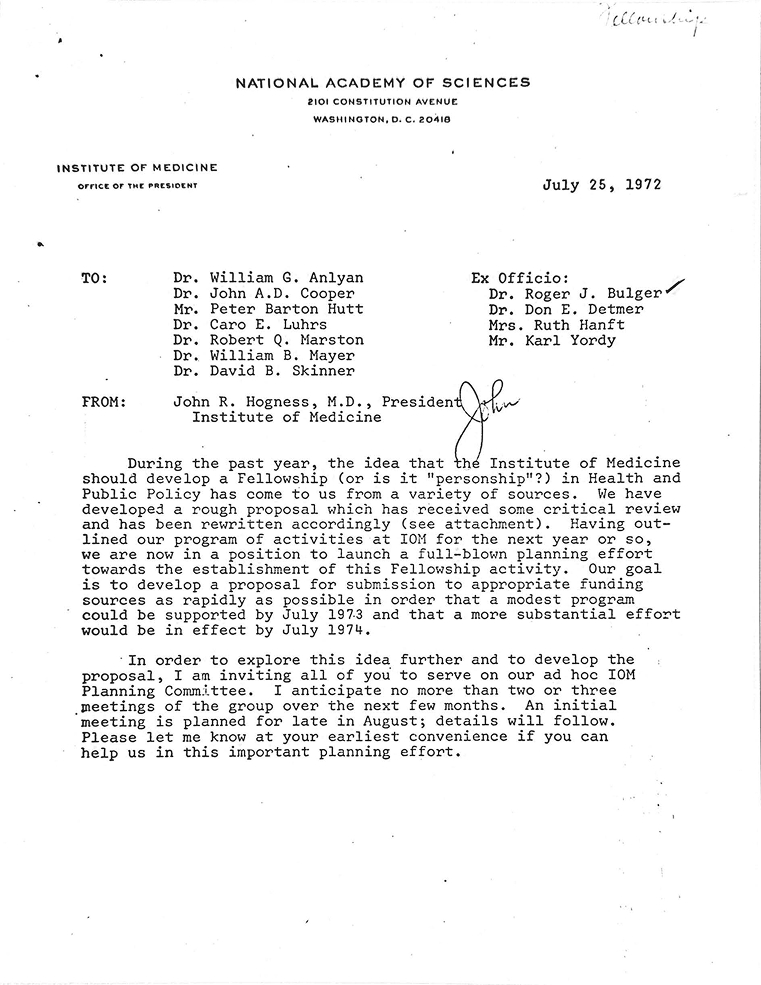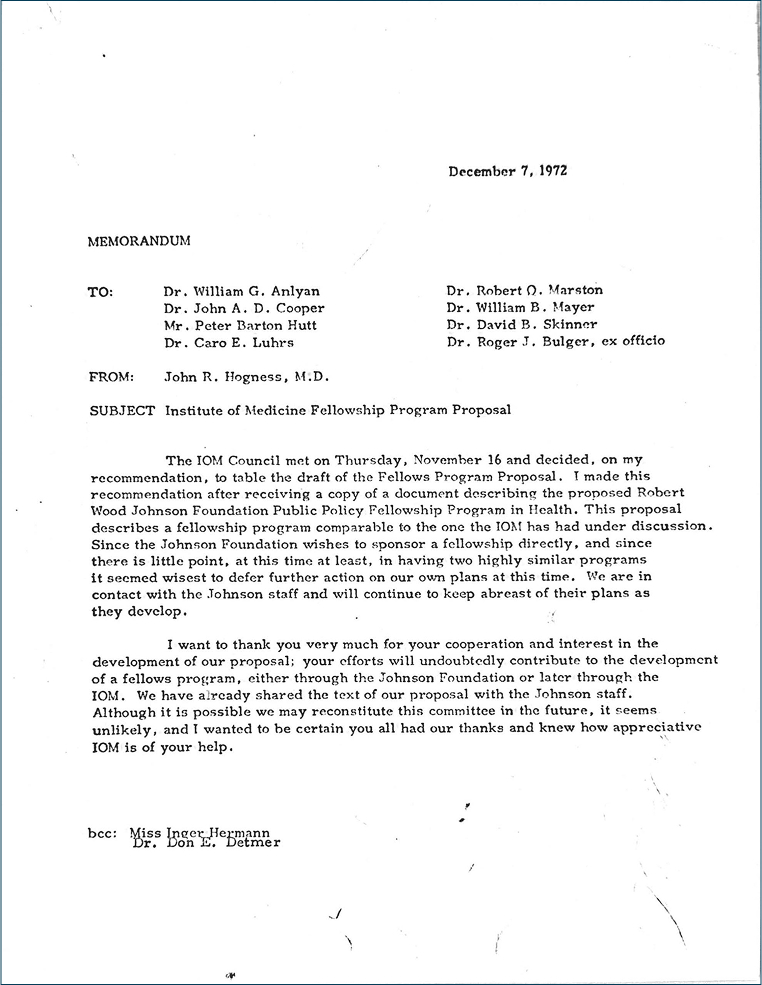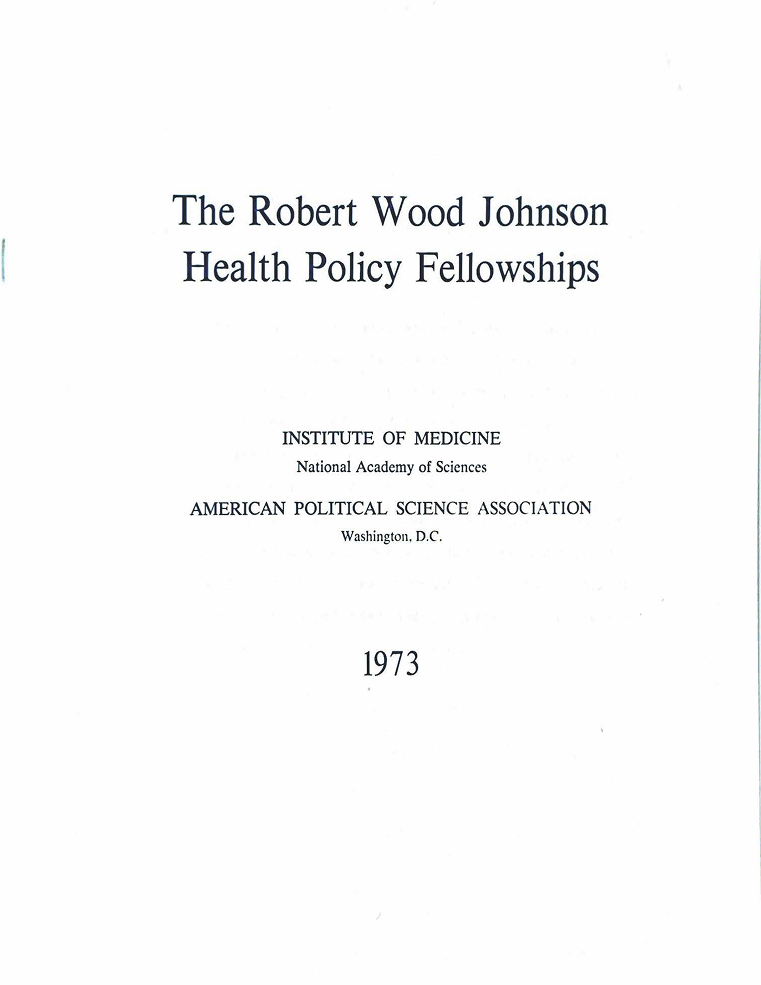50 Years of Impact
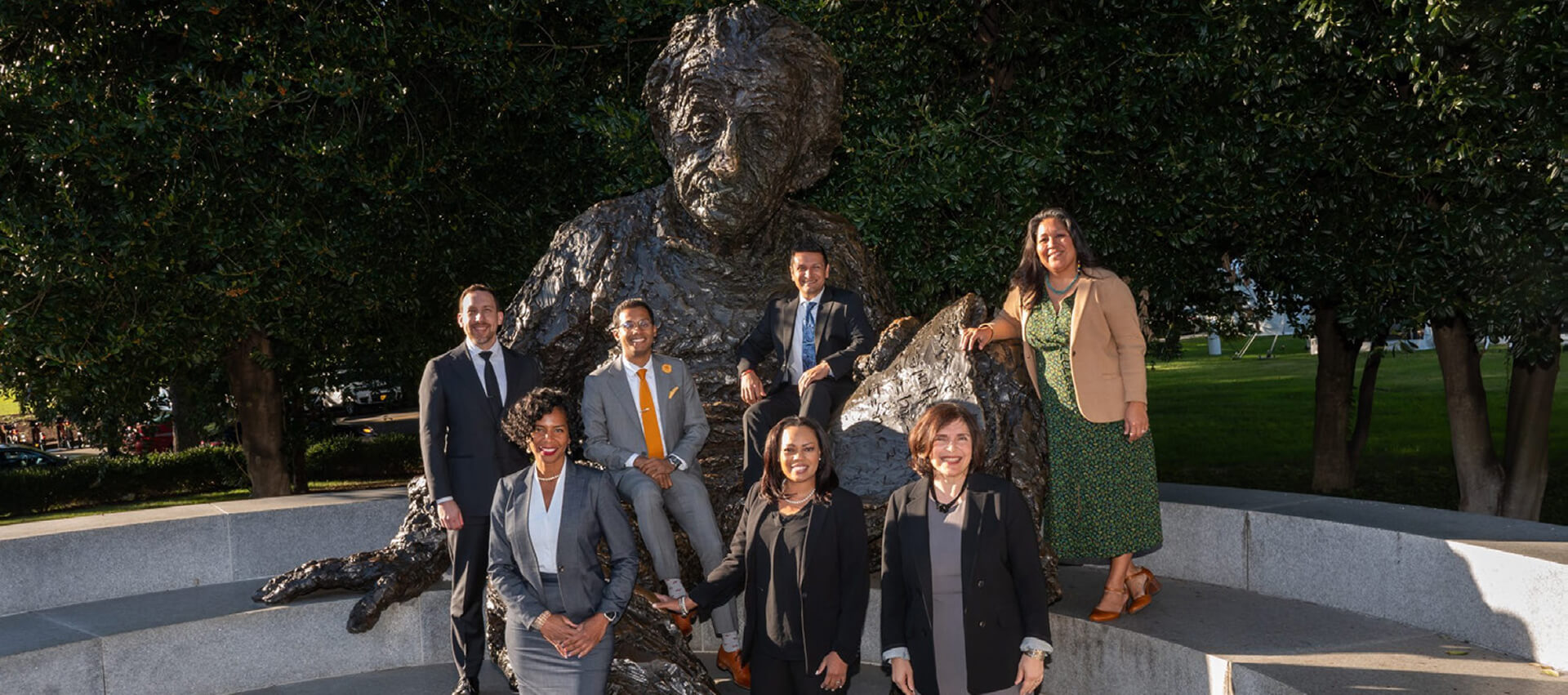
Early History
An IOM Fellowship in
Health Policy
In a letter to Dr. Hogness, Detmer explained his goals for the proposed fellowship year:
First, I would like an opportunity to make first-hand observations of accomplished individuals grappling with important social and medical issues of the day. A willingness on your part to let me attend the Institute’s staff sessions as well as Executive Committee meetings would be essential to achieve this end.
Secondly, as I mentioned, I have no formal training in management and observing the development of the Institute in its neo-natal period would offer intimate exposure to organizational evolution and decisionmaking relative to this. Also, with some assistance, I would. enjoy an opportunity to develop the agendas for two or so committee meetings for some expertise in favorable member selection and stimulating program development.
Thirdly, I desire an opportunity to make meaningful input into the projects of the Institute that most appeal to me. A brief outline of projects you mentioned make this appear to be no great hurdle. The possibility of working closely with your planning expert in the development of background data looks very fascinating. With a sincere interest in long range health strategy, such exposure might make a very solid educational contribution to my background.
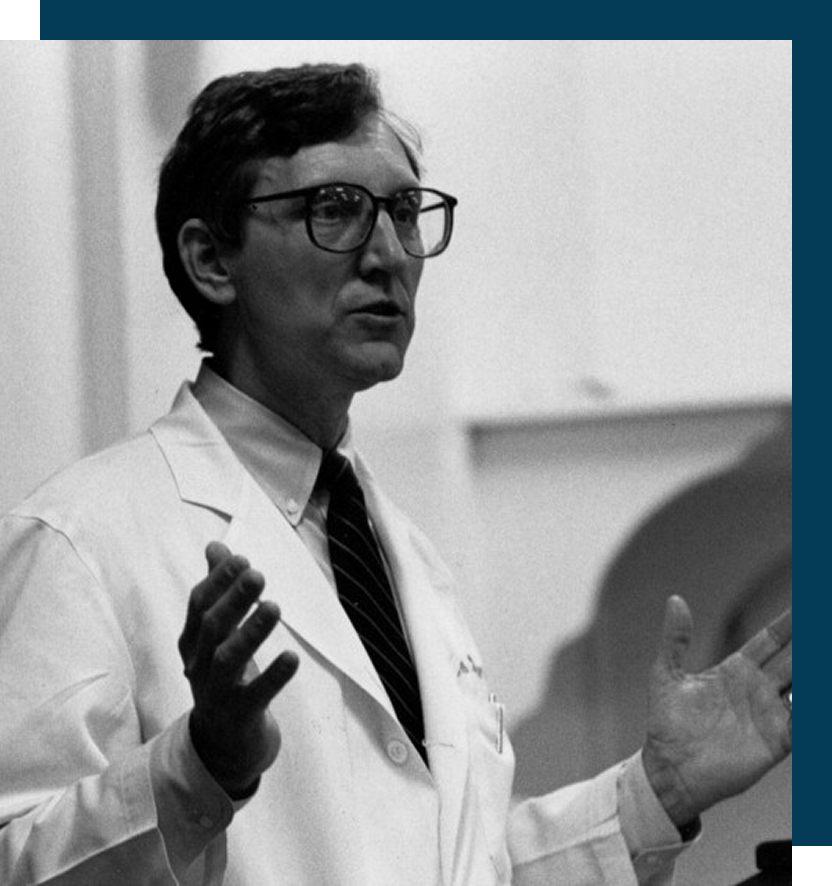
In the summer of 1972, Don Detmer started a one-year
“proto-fellowship” at the Institute of Medicine.
Shortly after Dr. Detmer began his proto-fellowship, Dr. Hogness convened a planning committee to discuss the creation of a fellowship in health and public policy
Hogness attached a proposal to his request, which stated:
First, I would like an opportunity to make first-hand observations of accomplished individuals grappling with important social and medical issues of the day. A willingness on your part to let me attend the Institute’s staff sessions as well as Executive Committee meetings would be essential to achieve this end.
Secondly, as I mentioned, I have no formal training in management and observing the development of the Institute in its neo-natal period would offer intimate exposure to organizational evolution and decisionmaking relative to this. Also, with some assistance, I would. enjoy an opportunity to develop the agendas for two or so committee meetings for some expertise in favorable member selection and stimulating program development.
Thirdly, I desire an opportunity to make meaningful input into the projects of the Institute that most appeal to me. A brief outline of projects you mentioned make this appear to be no great hurdle. The possibility of working closely with your planning expert in the development of background data looks very fascinating. With a sincere interest in long range health strategy, such exposure might make a very solid educational contribution to my background.
Partnering with the Robert Wood Johnson Foundation (RWJF)
In December 1972, John Hogness halted the creation of an internal IOM fellows program after learning that the Robert Wood Johnson Foundation wants to sponsor a Public Policy Fellowship Program in Health.
Detmer concluded in a memo to John Hogness that he “left the meeting feeling that further discussions between you [Hogness] and the Johnson Foundation staff, including Rogers, would be worth pursuing, since it is possible that a program of mutual interest could be worked out.”
In the meantime, Hogness sent Don Detmer, on behalf of IOM, to RWJF to discuss the possibility of a collaborative health policy fellowship program. Detmer met with Dr. David Rogers, Margaret Mahoney, Robert “Bob” Blendon, David Skinner, and William Mayer. At the meeting, Detmer shared his own experience as a fellow at IOM and RWJF shared their thinking about the fellowship format, including the idea to partner with the American Political Science Association (APSA).
Selecting the
First Six Fellows
In the summer of 1973, the IOM sent more than 3,000 program brochures to academic institutions, members of Congress, agencies of the Executive Branch, and related health organizations to announce the fellowship. In addition, President John Hogness sent invitations to 114 academic health centers and medical schools asking for nominations of candidates. By the end of December 1973, 43 institutions had submitted a nomination.
At its January meeting, the Health Policy Board narrowed the 43 nominations to 12 finalists who they invited to Washington, D.C. for interviews in March.
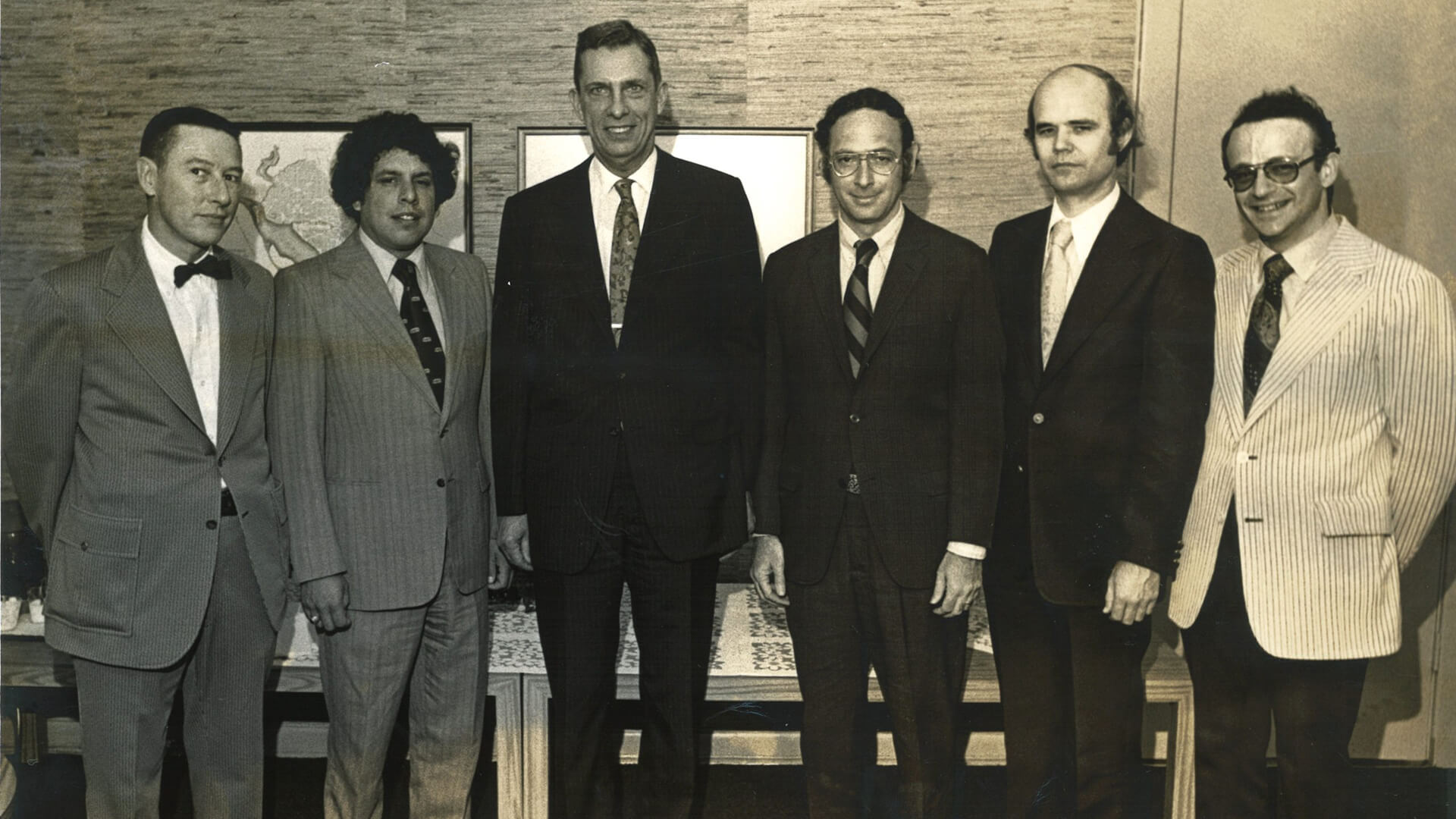
On March 28, 1974, the Institute of Medicine officially announced the selection of the first six Robert Wood Johnson Health Policy Fellows.
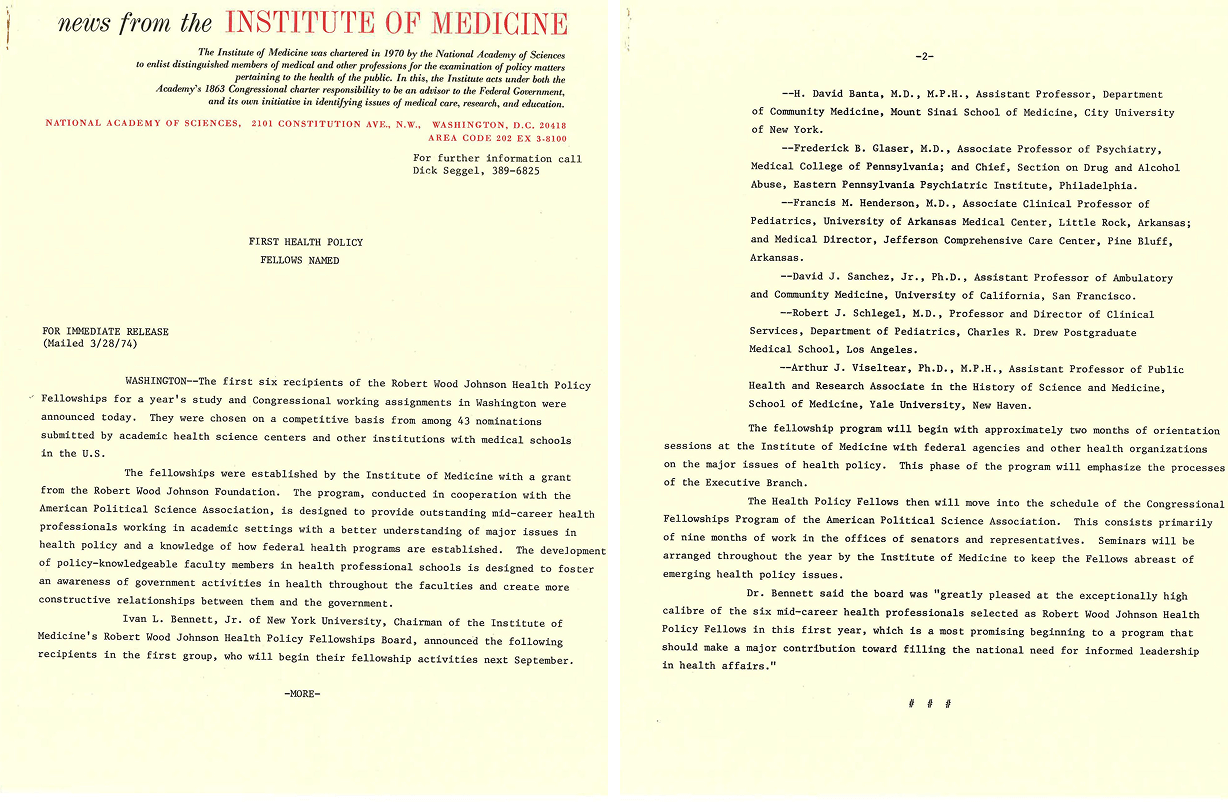
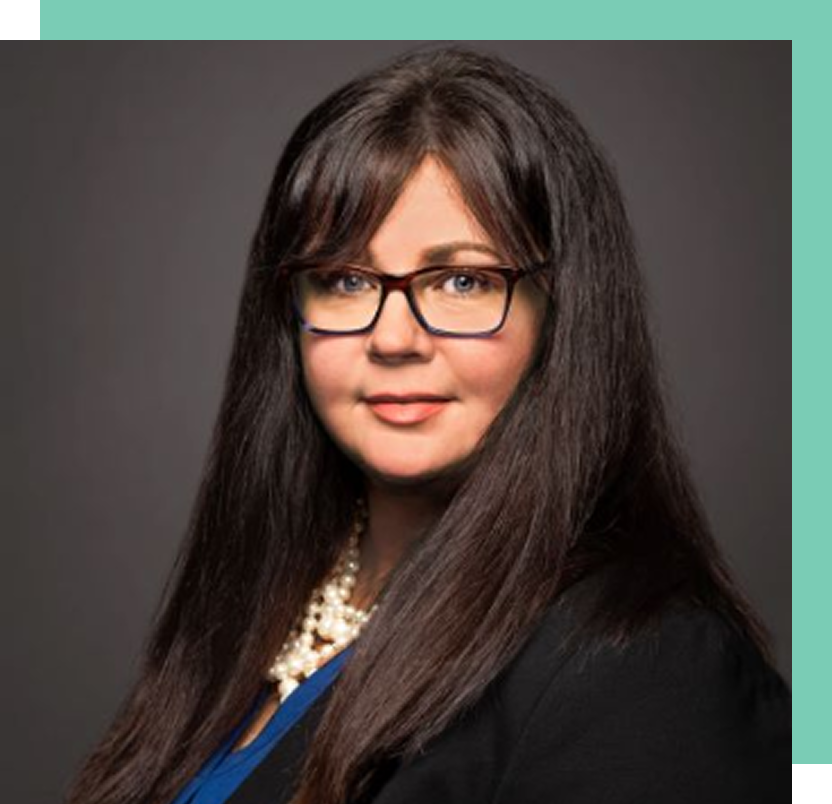
Championing Health Policy at the Institute of Medicine
In January 1972, Dr. Don Detmer approached IOM president Dr. John Hogness, eager to dedicate a year to the Institute of Medicine. At that time, the IOM was just beginning its journey, having officially started operations in December 1970 and revealing its first members only seven months prior. Detmer later reflected in a 2024 interview that their meeting was so early in the IOM’s history that Hogness was still unpacking boxes in his office.

